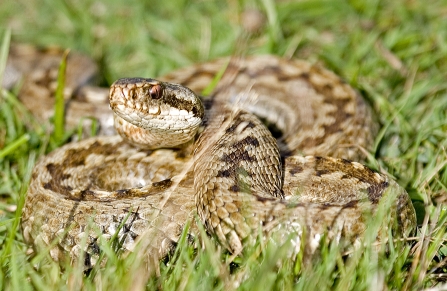Lickham Common
Location
Know before you go
Dogs
When to visit
Opening times
Open at all timesBest time to visit
May to SeptemberAbout the reserve
A wet heathland area surrounded by woodland. A fascinating mix of heathland plants.
This isn't the easiest nature reserve to find or to explore. Made up of wet and boggy heathland it's a challenge to stay dry, but it is worth the effort!
Ash dieback
The disease ash dieback is now widespread in the UK and is present at many of our nature reserves, so we carry out tree felling across our sites in winter months. For your own safety please observe temporary path diversions and closures.
Where possible we will leave affected ash trees in place to decay naturally as an important habitat for wildlife. We plan to only fell diseased ash trees which pose a threat to people or infrastructure. Before trees are felled, we will check whether any rare or protected wildlife is present. If it is, we will postpone or avoid felling these trees. No felling will take place during the bird nesting season.
DWT’s Saving Devon’s Treescapes project are working with communities, landowners and businesses to help make Devon's precious treescapes more resilient in the face of ash dieback. Find out how you can get involved here.
NOTICE: If you are visiting our reserves, please note that there have been instances of H5N1 Avian bird flu found in birds in Devon. There is very low risk to public health, but we do ask that if you come across any unusual or unexplained bird deaths on or near our reserves, please do not touch them and avoid allowing your dog to come into contact with dead birds. Please report them to Defra here or call 03459 335577 and also report your findings to DWT by email at contactus@devonwildlifetrust.org.
Habitat
Contact us
Location map

Adder. Photo, Chris Root
This kind of heathland was once much more common in these parts but now Lickham Common is a rare example. It takes Devon Wildlife Trust a great deal of effort and the grazing of our herd of Exmoor ponies to maintain it.
In amongst the tall purple moor grass grow marsh violets, lesser spearwort and horsetails. Frogs and toads also thrive in the wet conditions, and the dense grassland provides good cover for adders, grass snakes and slow-worms. Tread slowly and you may catch a glimpse.
Explore the Blackdown Hills from here
Lickham Common forms part of a chain of three nature reserves in the Blackdown Hills cared for by Devon Wildlife Trust. Take time to discover the others at Ashculm Turbary and Clayhidon Turbary.


